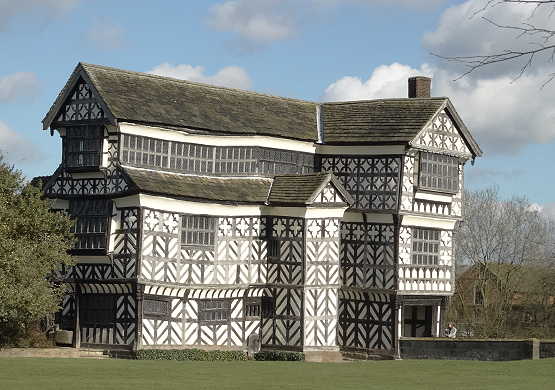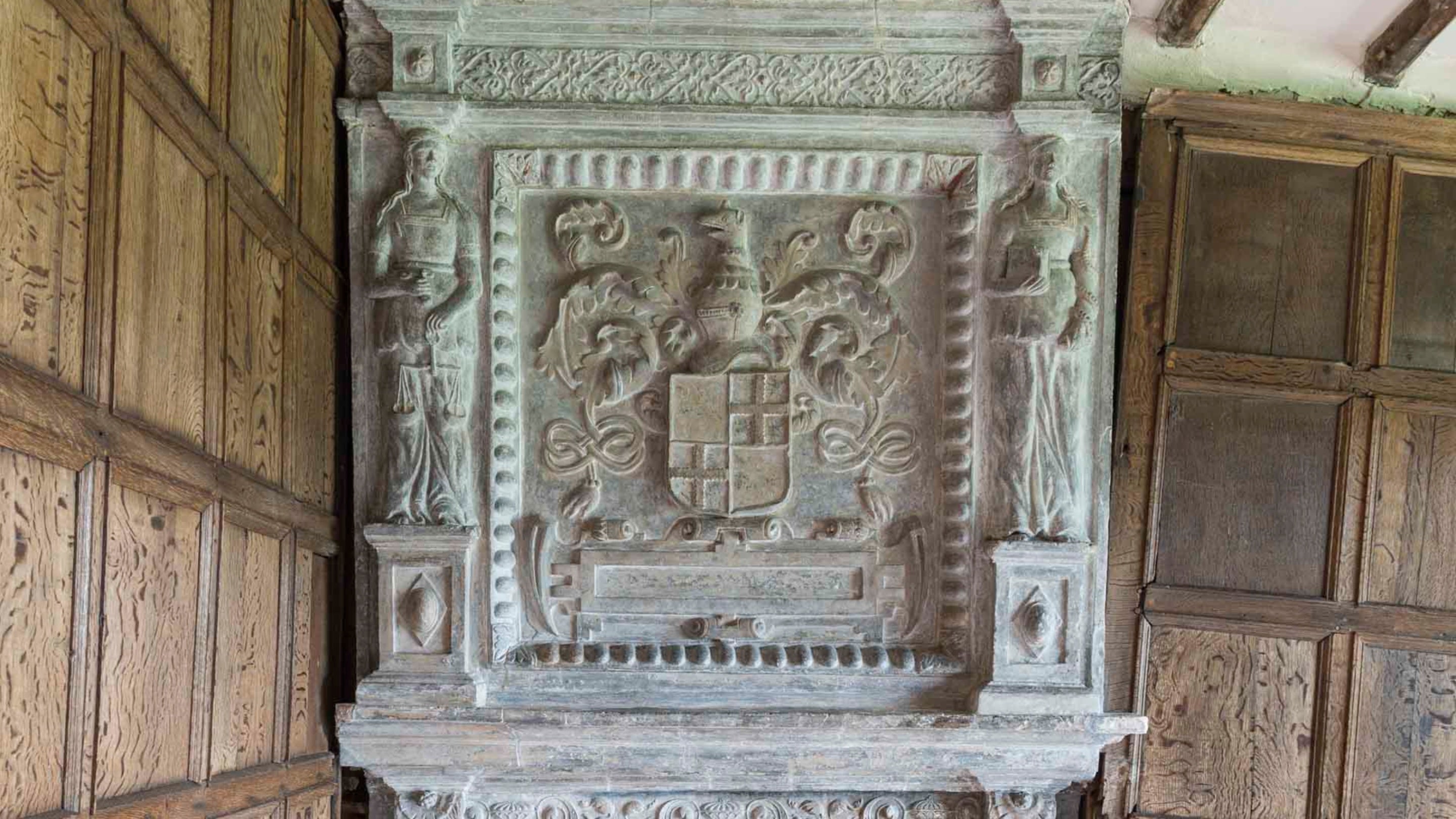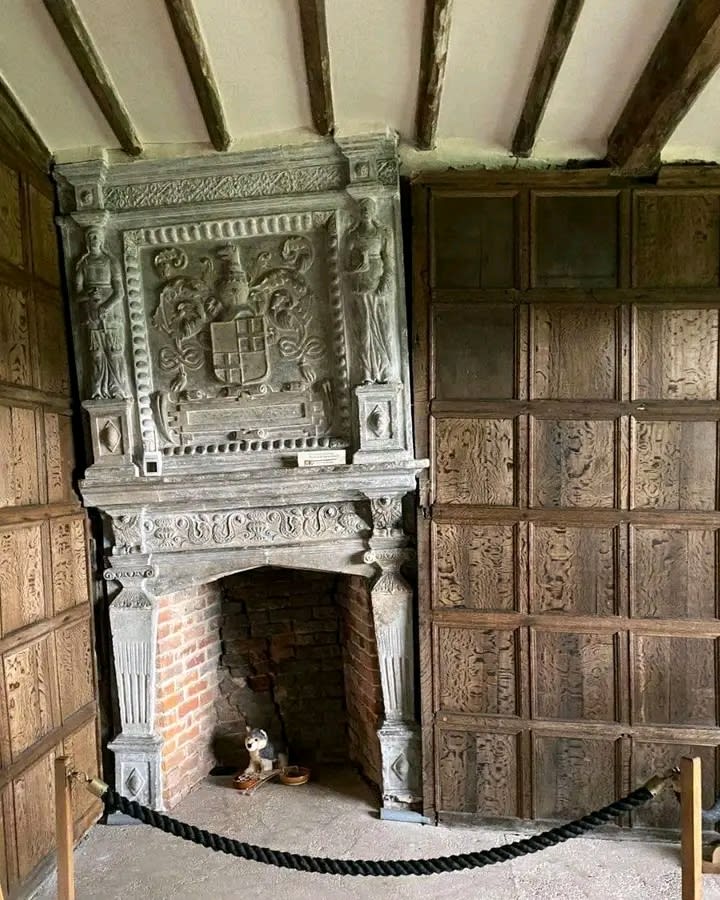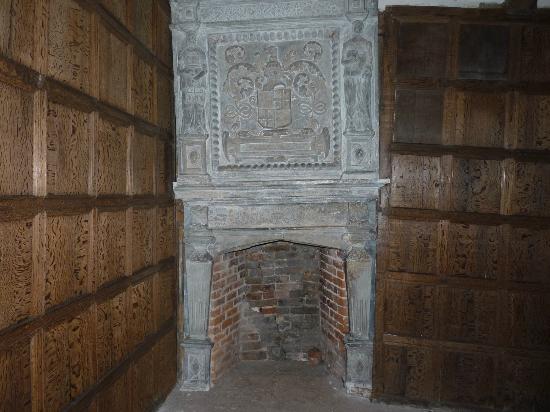At first glance, the fireplace in Little Moreton Hall, located in Cheshire, England, appears dramatically crooked. Yet, upon closer inspection, it is revealed that the fireplace is perfectly straight. The apparent misalignment is actually an optical illusion created by the surrounding room, which is one of the most famously skewed spaces in England. The room’s slanted walls and warped windows trick the eye, making the fireplace appear off-center when it is, in fact, perfectly vertical.

A Timeless Architectural Enigma
Little Moreton Hall, built in the 15th century, is renowned for its distinctive, asymmetrical design and its famously wonky architecture. Often referred to as one of the “wonkiest buildings in England,” the hall showcases a blend of charming imperfections and advanced medieval craftsmanship. These quirky architectural features, such as sagging walls and beams that seem to defy the laws of physics, give the hall a unique, almost whimsical character.

The house’s wonkiness is the result of centuries of settling and the natural shifting of its timber frame. This ongoing movement has led to the tilting walls, warped windows, and beams that seem askew, creating the building’s disorienting yet endearing appearance. The irregularities, while unusual, demonstrate the hall’s resilience and the remarkable engineering techniques used by medieval builders.
The Fireplace: A Master of Illusion
The fireplace, which appears off-center at first glance, is one of the most intriguing aspects of Little Moreton Hall. Due to the natural tilting of the room, the alignment of the surrounding architecture creates the illusion of a crooked fireplace. However, a closer examination reveals that the fireplace itself is perfectly straight. This clever visual trick is just one of the hall’s many eccentricities that fascinate visitors.

While the fireplace is a notable feature, it is only one of many oddities within the house. Little Moreton Hall’s distinctive architectural style, with its tilted rooms and slanted beams, offers an immersive experience for visitors who are both disoriented and mesmerized by the peculiarities of the space. These architectural quirks, however, are not just oddities but also serve to showcase the craftsmanship and ingenuity of the time.
A Glimpse into Medieval Craftsmanship
The hall was originally built as a wealthy family’s manor in the 15th century, and despite centuries of settling, much of the original structure remains intact. Little Moreton Hall stands as a testament to medieval timber-framed architecture, offering valuable insights into construction techniques from centuries ago. The skillful use of materials and innovative design elements are still evident today, making the hall an important example of medieval building practices.

Conclusion: A Whimsical, Historical Gem
Little Moreton Hall is more than just a house; it’s an architectural puzzle. The tilted rooms and wonky windows create an immersive experience that transports visitors back to medieval times while offering them the opportunity to marvel at the creativity and craftsmanship of the builders. So, when visiting this quirky building, remember: the fireplace may not be the odd one out after all—it’s simply another piece in this delightful architectural riddle.
Fun Fact: Little Moreton Hall was built as a manor for a wealthy family in the 15th century, and many of the original rooms are still intact, offering a rare glimpse into medieval architectural styles and craftsmanship.

